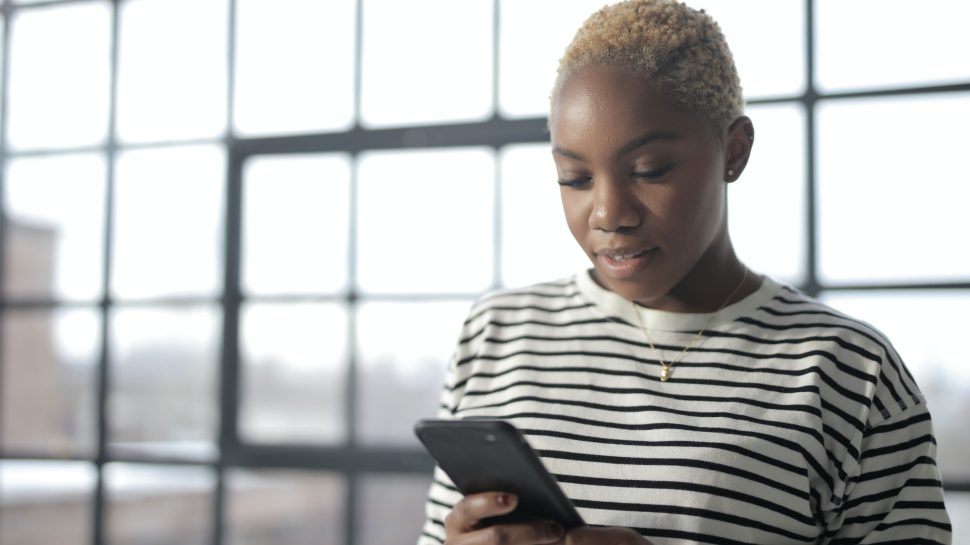The vital link to maintain for good mental health
Loneliness is common, even without a pandemic. It’s more important than ever to make the effort to stay connected.

As humans, we’re wired to connect. And while not everyone who’s alone feels lonely, Covid-19 has made all of us move into more socially isolated lives, even if we’re still living with others.
We’ve missed the incidental connections, from saying hello to someone at work, to waving to our postie, to bumping into a friend on the train - small moments that we might have taken for granted.
Family and friendship look different now. Many of us will have opened a social media app and waited for a face to appear. We will have had trouble unmuting our microphones, and laughing as a cat streaks across someone’s camera.
Reflecting back from the screen are all these people at their own kitchen tables, trying to reach out to one another in a digital space.
In 2018, one in four Australians reported feelings of loneliness. And during Covid-19 restrictions, half of us have felt more lonely than we did before.
Staying connected has been vital to our wellbeing this year. Dr Grant Blashki is in touch with many people in his community, in his roles as a GP, associate professor at the University of Melbourne and lead clinical adviser at Beyond Blue, and he sees the impact Covid-19 is having.
In this time of disconnect and uncertainty, Blashki says it’s not surprising we are experiencing increased mental health concerns.
“From living in small tribes and growing up in families, our whole neurology is very attuned to other people’s faces, the way other people are reacting, hierarchies, pleasure, finding mates,” he says. “It’s such an integral part of who we are.”
How loneliness can impact our health
During times of loneliness, we can get caught in common thinking errors of mind reading and self-criticism, Blashki says. “But loneliness also has quite significant impacts on physical health, including higher rates of high blood pressure, heart disease, obesity and more hospital admissions.”
It’s no wonder, then, that it can feel like our bodies crave connection, or that our screen time has increased while we look for social interaction. Blashki says physical distancing has led to us feeling less confident, and our social skills are getting rusty with under-use. “They’re quite nuanced - we need to practise them!”
Matt Indich is keeping his community connected during Covid-19 in his job as a postie in New South Wales. He’s noticed a swell of support from appreciative members of his local community.
“They’ve been really supportive of the work we’re doing and have been thanking us for our service as frontline workers,” he says.
“One of the best things about being a postie is getting to know the people on your delivery round, and over the years I’ve gotten to know many of my customers quite well. Now, I have found that whenever I am making a delivery and see the customer, they are really eager to have a brief chat and thank us for the work we’re doing and for delivering their parcel.”
A brief connection goes a long way
With social distancing, Indich doesn’t have as many face-to-face chats as he used to, but he still makes interacting a priority on his deliveries. “I try as much as I can to still maintain a connection with my customers,” he says. “A hello or a wave always go a long way to make someone’s day a bit brighter.”
Blashki agrees that a little will go a long way. “Even small amounts of contact are important,” he says. “This is a good time for a little bit of extra patience, a little bit of extra kindness. For a lot of people, that’s going to make a difference.”
To ease the loneliness, he suggests making a regular time to catch up with others, and recommends video and voice calls over text chats. Scheduling social events - even virtual ones - will help to make sure no one gets left behind. And if anyone needs extra help, specialised support services are available.
As parts of Australia ease back into “Covid normal”, reconnecting in person will be an adjustment, too. Blashki says we will need to consider the different ways we each have coped during months of restrictions, and be mindful that some friends and family may have been deeply affected by isolation.
“It will be important to be realistic for people who really have withdrawn from things. Small steps. Same with social interactions - you can take it easy. Ask a friend, why don’t we just go for a walk around the block? Pitch it at a level where you have a success and build up.”
Reconnecting and staying connected may have been challenging, but we’re making it through. The most important thing? “Keep up the hope budget,” Blashki says. “And be kind to yourself.”
As an organisation that connects every Australian, Australia Post is proud to partner with Beyond Blue. Together, the two organisations aim to lead a positive change in the way Australians talk about mental health. Because when we connect, we feel better. Learn more.
